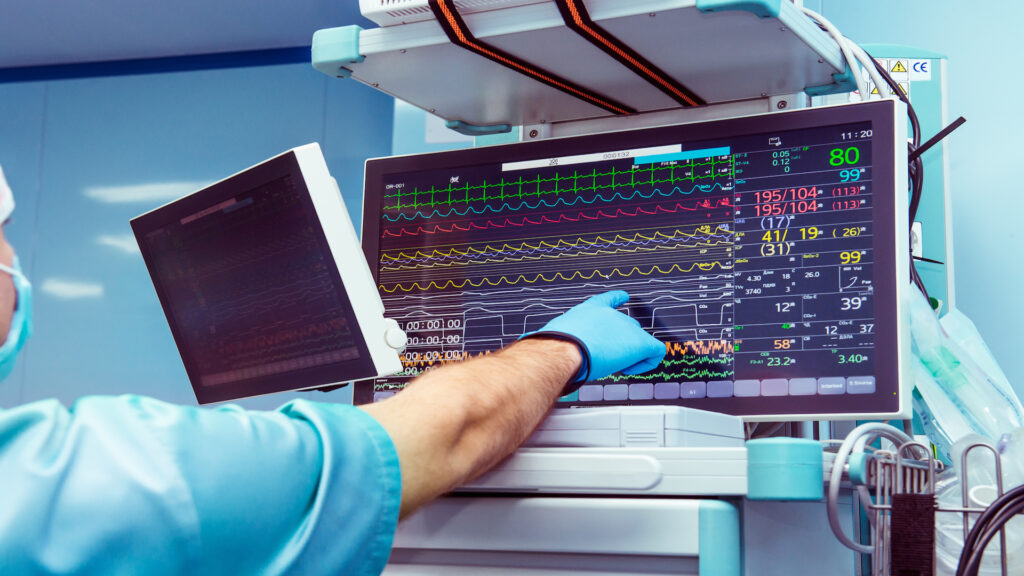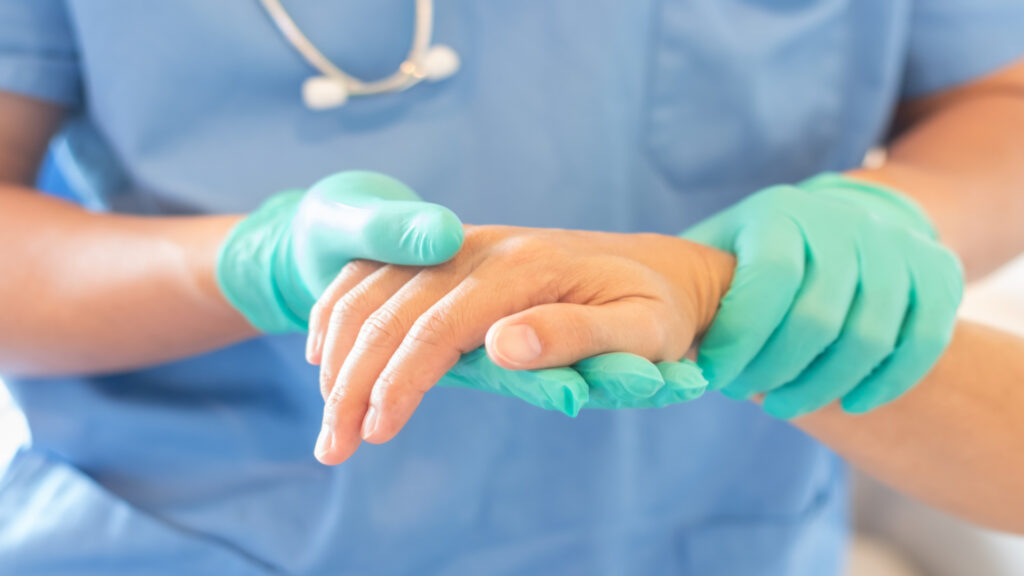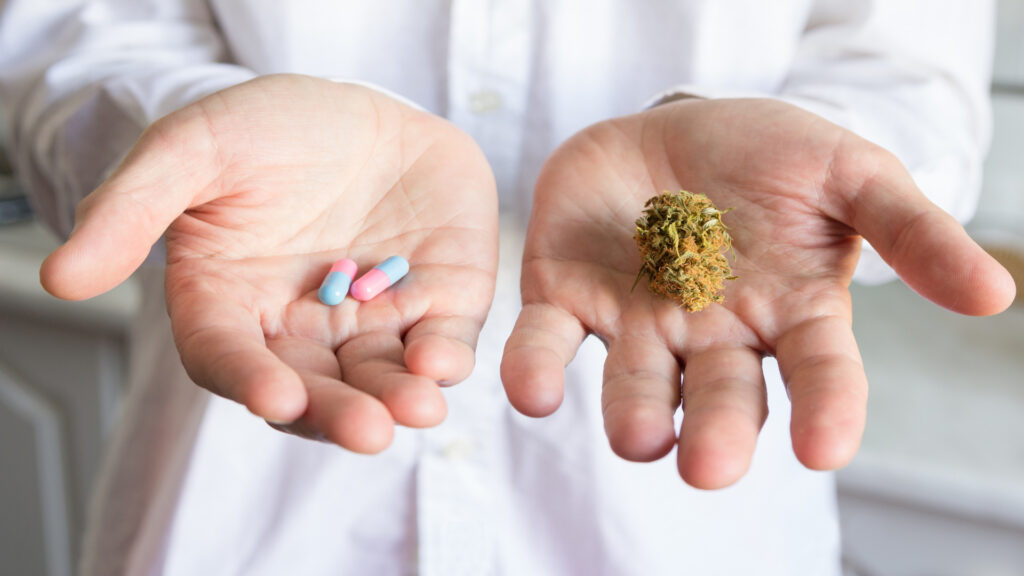
Is smoking cannabis safe before or after surgery?
No matter how minor an intervention, an operation is a scare bomb. Depending on the procedure, you may need to follow a protocol before and after use, and it may disrupt your regular routine of smoking, vaping, dabbing, or ingesting cannabis.
Cannabis has been part of our medicinal repertoire for centuries because it works! In ancient China, Egypt, America and beyond, people have documented the use of weed to treat all manner of ailments. Be sure to only consume products from a safe, lab-tested source, and be honest with your anesthetist and other healthcare providers.
We’ll cover whether you may need to give up weed temporarily, or whether cannabis can support your healing routine.
What is anesthesia and how does it work?
Simply put, anesthesia is a medical treatment that often consists of more than one form of medication to calm the patient, relax their body, and prevent pain during an operation, surgery, or invasive medical test like a biopsy felt.
There are three main forms of anesthesia given to patients before surgery:
- Local, in which only the immediate area around the surgical site is numbed and the patient remains conscious
- Regional, when a larger area is numbed but the patient may remain conscious (e.g., during a cesarean section)
- General, in which the patient is completely sedated and unconscious during the procedure

These are commonly given to patients via an IV injection or gas inhalation with a mask, as you might see on shows like Grey’s Anatomy, but there are also topical and transdermal options.
Despite their proliferation and necessity in the medical world for over 150 years, we still lack a full understanding of the nuances of how anesthetics affect our body’s systems and functions. Some research suggests that anesthetics prevent interactions between neurons.
Provided there are no underlying allergies to a drug, anesthesia does not affect respiratory or cardiovascular functions.
Local and regional anesthesia are more commonly used in oral surgeries, cavity fillings, sutures and epidural anesthesia during childbirth. More intensive and longer surgeries such as organ transplants, reconstructions, and emergency removals require general anesthesia that leaves the patient unconscious for several hours. These differences affect how cannabis use can interact with the effectiveness of your anesthesia regimen.
Related
Cannabis for pain: Does marijuana medication increase the risk of abuse?
How does cannabis use affect anesthesia?
Evidence remains scarce, although studies have found that a general anesthetic, propofol, interacts with our endocannabinoid systems. Some researchers believe this could lead to cannabinoid-based anesthetics without the risks associated with substances like fentanyl. A British Journal of Pharmacology article indicates that propofol may increase endocannabinoid levels in the brain and impart sedative properties, but cannot predict how individuals will fare as a result of its use.
A study in the Journal of Osteopathic Medicine found a strong correlation that cannabis users show a higher tolerance to propofol and other forms of anesthesia compared to non- or infrequent users, which may alter how it affects you during surgery and how much is needed for it a successful operation. However, due to a lack of human research studies, it is unclear how same-day use of cannabis affects anesthesia, if at all.
Do I have to stop smoking before the operation?

While we don’t currently have the breadth of research needed to say definitively whether or not it’s safe to smoke before surgery, recent findings point to some potential risks that aren’t necessarily related to cannabis, but are relating to smoking in general. We advise you to speak to your GP about cannabis use and its possible interactions with anesthesia during surgery.
While smoking cannabis has myriad potential benefits, it still means burning a plant and exposing the lungs to carcinogenic material. Anesthesia can potentially obstruct the body’s airways and affect blood pressure; Long-term damage and irritation from smoking can lead to complications.
There are currently no documented cases of cannabis use resulting in death during surgery.
If so, how long before surgery should one stop smoking cannabis?
This is a personal decision that depends on the procedure. The risk is lower for surgeries that only require local anesthetic and do not affect the heart or airways. For edibles lovers, patients should stop taking within the same timeframe their doctors recommend they avoid eating and drinking beforehand.
Related
Me vs. The Weed: Returning from a tolerance break
As a precautionary measure, some experts recommend abstaining from all forms of consumption weeks in advance, while others recommend quitting smoking at least 72 hours beforehand, as a 2018 article in the research journal Heliyon states.
How to talk to healthcare providers about marijuana use
Many medical marijuana patients and recreational users consider cannabis use a private matter. Unfortunately, the last century of US-led cannabis prohibition and the decades of the War on Drugs have eroded many people’s trust in the medical establishment to provide them with accurate information about cannabis and its possible side effects.
Because weed and its compounds can interact with anesthesia during surgery, disclosing your cannabis use to your GP is vital to your health and long-term benefits. Despite its Schedule I status, disclosing cannabis use to a physician or healthcare provider falls under the Health Insurance Portability and Accountability Act of 1996 (HIPAA). Under this, cannabis use must not be used against you or reported to law enforcement unless there is an imminent threat to public safety or your health. Please note that this protection may not extend to minors.

Doctors can, however, refuse services to patients. And remember that doctors may tell you to refrain from using marijuana as there isn’t much concrete research on cannabis as they can neither confirm nor deny claims.
However, as states continue to expand medical marijuana programs, many have made it easier to find a doctor familiar with cannabis therapy and its implications for other drugs and treatments. If you live in a state where cannabis is used medicinally or for adults, the state health department may have resources to find doctors who are familiar with cannabis.
Does cannabis affect anesthesia in cardiac patients?
Many high-profile health organizations, such as the American Heart Association and the CDC, advise against using cannabis to alleviate heart disease, warning that cannabis use may actually worsen symptoms and susceptibility to heart disease. However, they also state that these beliefs are based on minimal and observational research, as cannabis’ Schedule I status makes it incredibly difficult to fund research and study.
Related
Debunking Dispensary Myths
They also largely refer to smoking cannabis, not other methods such as ingestion. Smoking cannabis can lead to increased heart rate and blood pressure, and research shows that cannabinoids have both vasodilatory and vasoconstrictive effects in animal studies; A recent study by Stanford Medicine scientists concluded that marijuana use has some association with heart disease, but there is insufficient evidence to suggest that this is a guaranteed consequence of cannabis use.
What is the best method of ingestion before surgery?
If giving up cannabis use just isn’t an option, there are several methods that don’t involve smoking or eating. Most surgical protocols require the patient not to eat for a certain number of hours prior to surgery to avoid complications with anesthesia and digestion. Eating edibles or smoking on an empty stomach also increases the intensity of the effects of cannabis.
This doesn’t leave too many options, but a tincture or transdermal product would be safest as any method that minimizes inhalation and ingestion is ideal.
Is cannabis suitable as a postoperative medicine?
Despite the risks associated with pre-surgery marijuana, it has many potential benefits in the recovery process. Surgery is invasive and almost always causes some inflammation at the surgical site.
Cannabinoids like CBD and CBG have gained popularity for their anti-inflammatory properties, which can simultaneously speed up physical recovery and improve mental well-being. THC remains a recognized alternative to opioids for treating pain, as well as being an appetite stimulant and good for preventing nausea.
While your GP may not be able to prescribe or recommend cannabis as part of your treatment plan, it is in your best interest to make them aware of your use. Prolonged cannabis use can potentially impair opioid tolerance, which can affect recovery time. Because smoking can cause coughing and irritation in the lungs and throat, we recommend topical, edible, and tinctures post-surgery. A full-spectrum product with both CBD and THC helps the body’s endocannabinoid system engage better and you can get more benefits from it.
Amelie Williams
New York-based freelance cannabis journalist Amelia Williams is a graduate of San Francisco State University’s journalism program and a former budtender. Williams has contributed to GreenState, MG Magazine, Culture Magazine and Cannabis Now, Kirkus Reviews and The Bold Italic of the San Francisco Chronicle.
Check out Amelia Williams’ articles
By submitting this form, you are subscribing to Leafly news and promotional emails and agreeing to Leafly’s Terms of Service and Privacy Policy. You can unsubscribe from Leafly email communications at any time.

Post a comment: